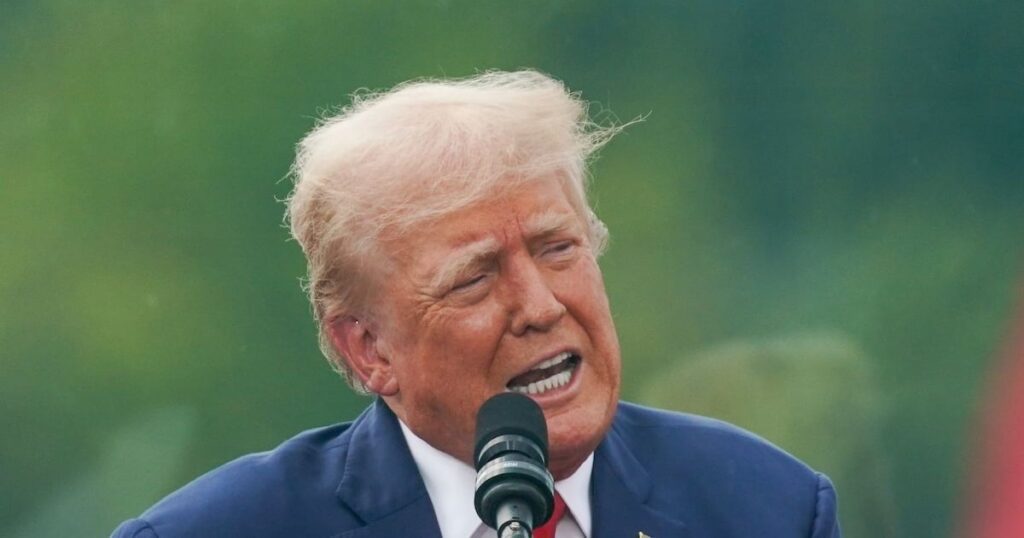- Cryptocurrency companies, executives and investors have raised more money than any other sector to influence the 2024 election.
- Since 2010, cryptocurrencies have been second only to the fossil fuel industry in terms of political spending.
The crypto industry has spent an “unprecedented” amount of money in 2024 to try to influence the US congressional elections, according to watchdog group Public Citizen.
Cryptocurrency companies, executives and investors are “by far the biggest political spenders” this year, contributing $119 million this election cycle, according to the nonprofit’s analysis. They’ve spent $129 million over the past three election cycles.
According to Public Citizen, this puts cryptocurrency behind the fossil fuel industry in terms of corporate spending since 2010, when the Supreme Court ruled that companies could spend an unlimited amount of money on elections as long as it went to independent groups supporting candidates or causes, rather than the candidates themselves.
It’s the latest sign that crypto has become a force in the 2024 elections.
Republican presidential candidate Donald Trump appeared at a Bitcoin conference last month, where he told a cheering crowd that “the rules will be written by people who love your industry, not hate it,” if he wins in November.
Meanwhile, cryptocurrency advocates are keeping a close eye on Democratic candidate Kamala Harris, looking for signs of a policy “reset” after chafing at aggressive regulators appointed by outgoing President Joe Biden.
The first signs of this reset appeared on Wednesday, when Bloomberg Harris adviser Brian Nelson, who is viewed with skepticism by some in the industry, said Harris “would support policies that ensure that emerging technologies and these types of industries can continue to grow.”
Public Citizen, which is suing Coinbase and Fairshake for alleged violations of federal election laws, criticized the crypto industry’s spending in its report.
Join the community to receive our latest stories and updates
“This corporate cryptocurrency tsunami is a brazen and unprecedented attempt by for-profit companies to put their private and pecuniary priorities ahead of the public interest,” he said.
Coinbase and Fairshake did not immediately respond to a request for comment.
“Big Crypto”
According to Public Citizen, of the $248 million in “corporate money” spent on elections this year, nearly half came from the crypto industry.
Since the 2010 Supreme Court decision, also known as Citizens’ United, about 15% of all corporate contributions have come from crypto.
Most of that money, about $114 million, went to the Fairshake super PAC, according to Public Citizen. And most of the money donated to Fairshake came from two companies: Coinbase and Ripple.
“The crypto giants’ massive spending strategy appears to be paying off,” Public Citizen reported. Of the 42 primary campaigns they donated to, candidates favored by crypto-backed super PACs won 36 times.
He also attributes Trump’s courtship, Harris’ resentment, and New York Sen. Chuck Schumer’s recent appearance at a pro-crypto town hall to the industry’s deep pockets.
“To be fair, crypto did not invent the corporate political influence strategy of rewarding candidates who agree to do an industry’s bidding while threatening those who resist corporate power,” Public Citizen said.
“But no industry has ever been so willing to raise money directly from corporations and openly use that political war chest as an imminent threat (or reward) to discipline legislators into adopting an industry’s preferred policies.”
The group’s analysis was limited to super PACs and hybrid PACs, which must disclose contributors to the Federal Election Commission.
So-called dark money groups, which are not required to disclose their backers, have also funded ads against crypto-skeptic Senators Elizabeth Warren and Sherrod Brown, Public Citizen noted.
Aleks Gilbert is DL News” DeFi correspondent based in New York. You can contact him at aleks@dlnews.com.

